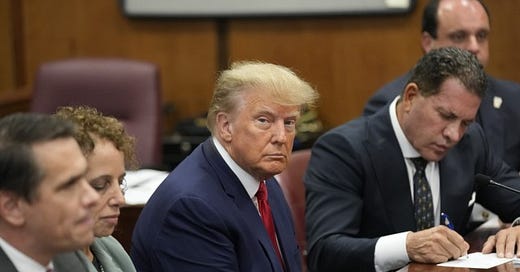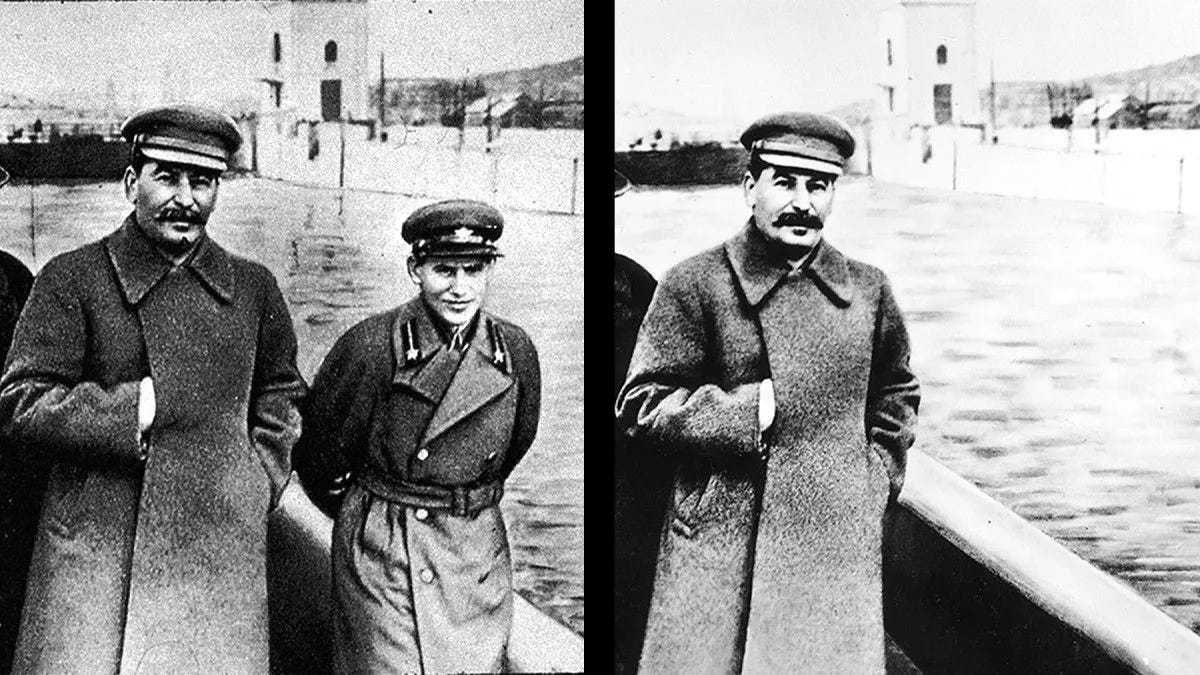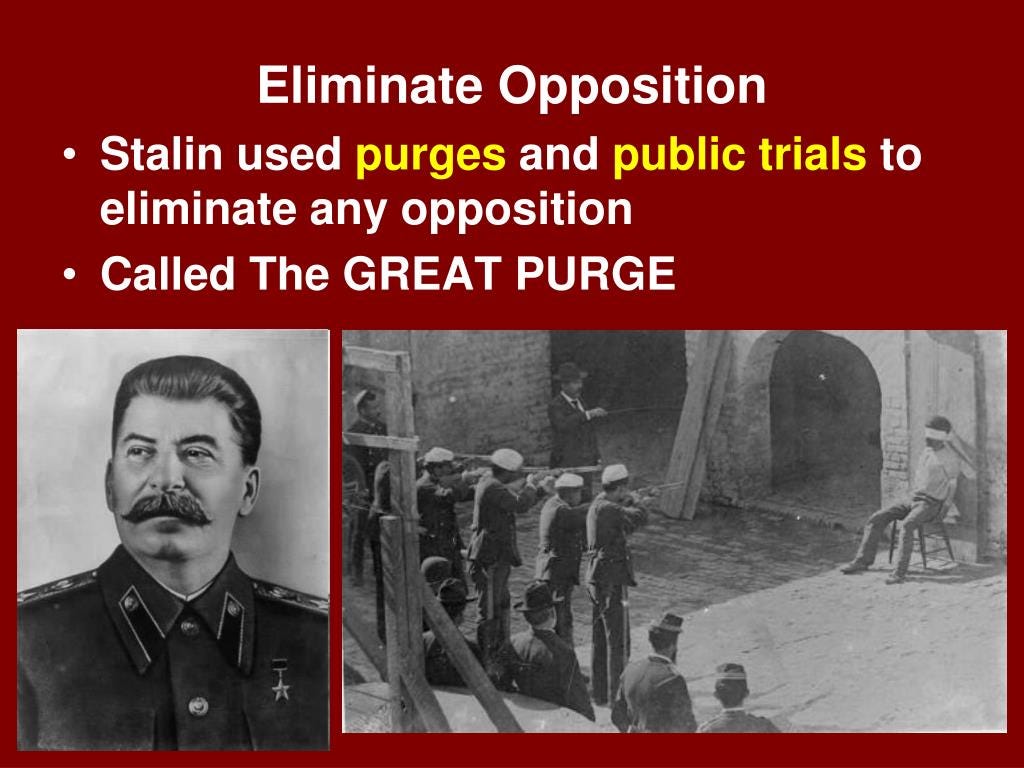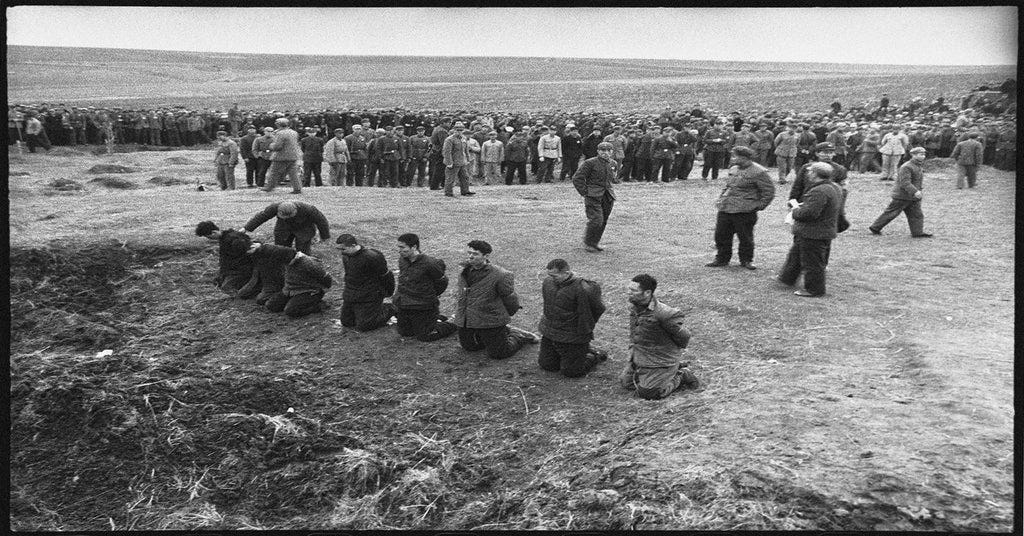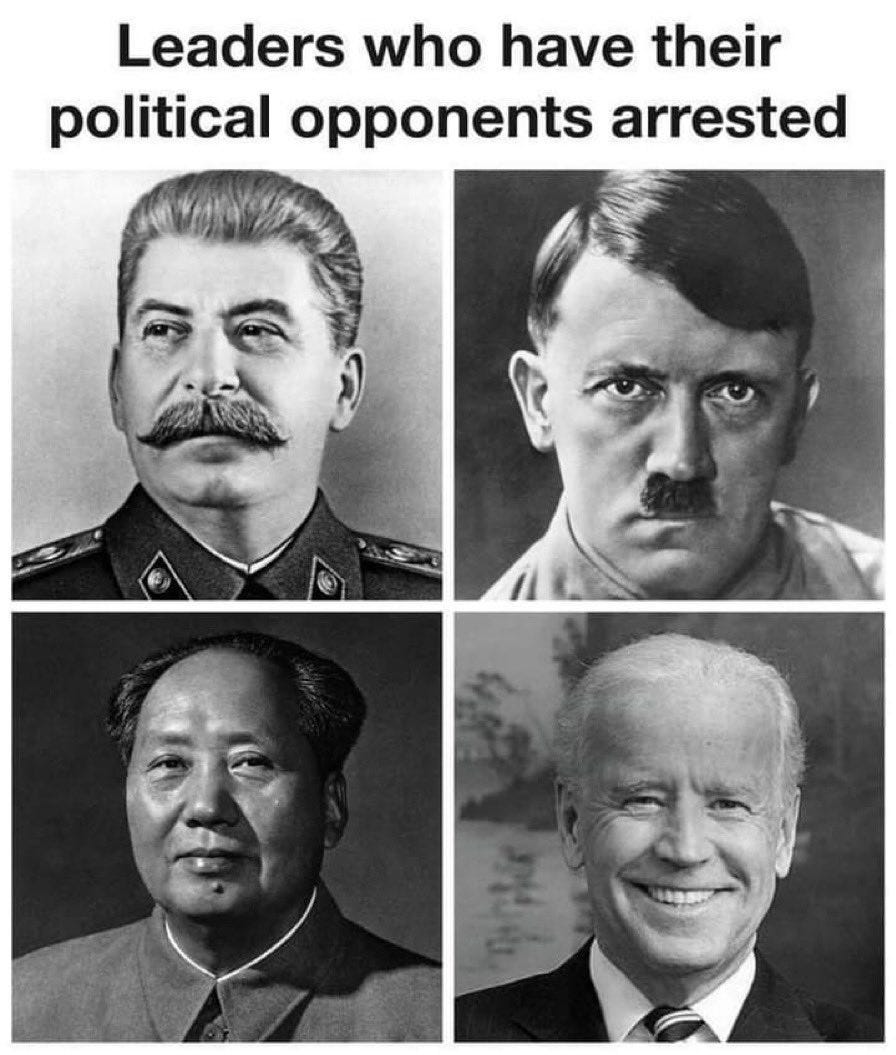“Justice is not a weapon. It is not something to be wielded for political gain or personal vendettas.” - Kamala Harris
The term "political prosecution" is often used interchangeably with "political persecution", but the former refers specifically to the use of legal mechanisms to punish political dissidents.
It is an abuse of power carried out through the corruption of due process in an arbitrary and discriminatory manner.
This oppressive legal action often takes the form of trumped-up charges, or overly harsh sentences for relatively minor offenses.
In many cases, the charges are not based on any legitimate legal grounds, but are instead used as a means of intimidation and harassment.
Victims of political prosecution are typically individuals who are seen as a threat to the ruling regime because of their political beliefs or actions. They may be a human rights activist, journalist, political opposition, or any other populist source of dissent.
While the impact of political prosecution on individual freedom and democracy is well-documented, it is also important to consider the ways in which this practice can drain the resources of the individuals being targeted.
Targeted individuals often find themselves in need of expert legal representation, which is expensive and time-consuming. Legal fees and court costs quickly add up, leaving individuals chasing the clock to stay ahead.
The significant drain on an individual's time and energy is often under looked. Court appearances, hearings, and other legal proceedings can require a significant amount of time and preparation, taking individuals away from their work, family, and all other obligations.
Publicly targeting opposition is used to intimidate and harassment others considering speaking out.
Governments have used the legal system to target and punish their own citizens all throughout history. This was particularly true during the Marxist revolutions of the 20th century, when millions of people were imprisoned, tortured, and executed for their political beliefs.
Understanding history is the key to never repeating it. Political prosecutions are a slippery slope, and it never ends well for anybody.
Stalin’s Great Purge
Also known as The Great Terror, The Great Purge was a tyrannical period in the Soviet Union that took place from 1936 to 1938.
During this time, Joseph Stalin, the leader of the Soviet Union, carried out a campaign of mass repression aimed at eliminating political opponents, intellectuals, and anyone else who was deemed a threat to his regime.
The Great Purge was characterized by a series of show trials, in which leading figures were accused of various crimes, including espionage, sabotage, and plotting to overthrow the government. These trials were highly publicized and often involved confessions obtained through torture or coercion.
Victims were not just limited to high-ranking officials though. Anyone who was perceived as a potential threat to Stalin's rule was at risk of being targeted.
The purges extended to the military, the police, the judiciary, and the intelligentsia. Defiant writers, artists, and other cultural figures were also targeted, as were ordinary citizens who were suspected of harboring anti-Soviet sentiments.
The scale was continental. Millions of people were arrested, and estimates of the number of those executed range from 700,000 to 1.5 million. Many of those who were not directly targeted were too afraid to speak out or take action against the regime.
The campaign ultimately weakened the country's military, intelligence, and infrastructure while silencing many of its most talented writers, artists, and scholars.
The International implications contributed to the perception of the Soviet Union as a brutal and repressive regime. The legacy left continues to be felt in Russia and around the world today.
Great Proletarian Cultural Revolution
The Cultural Revolution was a period of political turmoil and violence that occurred in China between 1966 and 1976, initiated as a response the growing influence of capitalist elements within Chinese society.
The campaign was led by Mao Zedong, the founder of the People's Republic of China, and was aimed at purging anyone perceived as a threat to the Communist Party. He believed that these elements were undermining the socialist values of the Communist Party and sought to eliminate them through a mass movement.
Mao's campaign began with the publication of his "May 16th Notice" in 1966, which called for the formation of "Red Guards" - groups of young people who were tasked with purging China of the "Four Olds" - old ideas, old culture, old customs, and old habits.
These Red Guards were encouraged to denounce and attack anyone who they believed was not sufficiently loyal to Mao and the Communist Party.
As the Cultural Revolution progressed, the Red Guards became increasingly violent and uncontrollable. They attacked teachers, intellectuals, and anyone else perceived as a threat to the regime. Schools and universities were shut down, and the education system was disrupted for years.
In addition to the Red Guards, Mao also mobilized the military to carry out his campaign. The People's Liberation Army was sent to various parts of China to quell dissent and arrest suspected counter-revolutionaries.
The Cultural Revolution resulted in the persecution and imprisonment of millions of people. Many were subjected to brutal violence, torture, and even death.
Intellectuals, artists, and writers were particularly targeted, as Mao sought to eliminate any potential sources of opposition or dissent.
Mao Zedong's campaign to politically prosecute anyone perceived as a threat to the Communist Party resulted in the imprisonment, torture, and death of millions of people.
The legacy of this period continues to be felt in China today, as the country struggles to come to terms with the trauma and violence of its past.
This corruption has a rippling effect on free speech and political expression, as individuals may self-censor to avoid becoming targets of prosecution.
A climate of fear and discourages individuals from participating in political discourse, leading to a further erosion of democratic values and principles.
It is important for everybody to recognize and condemn abuse of the legal system. Work towards protecting the rights and freedoms of all individuals, regardless of their political beliefs or affiliations.
The protection of individual rights and freedoms is essential to the well-being of any civilized culture.
By standing up against political prosecution, we can help to create a more just and equitable society for all.

